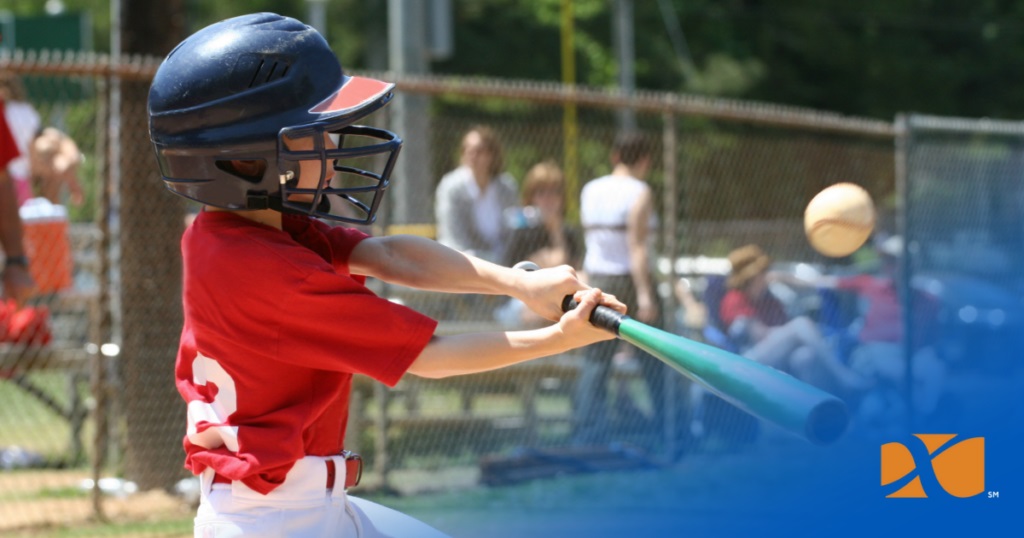
As parents, we cherish the excitement and joy that little league baseball brings to our children.
From the tender ages of 5 to 8, they step onto the diamond, wide-eyed and eager to embrace the world of youth baseball.
It's a journey filled with highs and lows, victories and defeats, but above all, it's an opportunity for our kids to…
• Develop essential skills
• Build real-world connections
• Make unforgettable memories.
Coaches and parents alike play a pivotal role in nurturing love for the sport, prioritizing encouragement over pressure and patience over performance.
One of the ways we can do this is by understanding how a child’s relationship with baseball develops through the years.

According to Little League University, the early days of our children’s Little League journey should be the “romantic stage.”
This idea means that it’s crucial for us to foster an environment where the primary goal is for our children to fall in love with the game.
At this age, the emphasis should be on fun, learning, and socializing with teammates.
Here’s how we can help:
During the romantic stage, building camaraderie among teammates is essential.
While coaches help build camaraderie on the field, parents can support this goal off the field as well.
They can organize team-building events or get-togethers that foster friendship.
Teamwork is an essential skill that benefits children well into adulthood.
Encouraging healthy teamwork will help them in their baseball journeys and their lives. It fosters friendships and fond childhood memories that can last a lifetime.

This could involve encouraging kids to cheer on their teammates during successes and stick by their side during more difficult moments.
Finding and encouraging opportunities for players to support one another enhances their playing experience.
As kids grow and their skill develops, their relationship with baseball changes too.

As our Little Leaguers progress into the “Technical Stage,” typically around ages 8 to 10, they begin to refine their skills and face more differentiated competition.
This stage presents challenges in the form of skill gaps. If not addressed correctly, children can begin to develop unhealthy competition with one another or feel disheartened by their own setbacks.
By this point, hopefully, they’ve already developed a great love for the game that helps them through this stage.
The next step for parents and coaches is to:
It's a stage where the values of determination, persistence, and staying open to learning are paramount, both on and off the field.

Amidst the thrill of competition and the camaraderie of team sports, it's essential to ensure that the spirit of fair play remains at the forefront.
Youth baseball is more than just a game.
It's a community-driven experience where every player has the opportunity to learn and grow, both as an athlete and as a person.
However, as with any organized sport, there are challenges to address and opportunities to seize.
One of the core principles we must instill in our young athletes is good sportsmanship.
It's about more than just winning or losing; it's about how we play the game and how we treat our opponents, teammates, coaches, and officials.
Stanford Medicine Children’s Health has some excellent tips for teaching good sportsmanship. These values will stay with kids for the rest of their lives.
The basketball player turned coach Harry Sheehy—the all-time leading scorer and rebounder for Athletes in Action—put it best:
Good sportsmanship encompasses values like respect, integrity, and graciousness, both in victory and in defeat.
As parents, we serve as role models, demonstrating these principles through our words and actions, both on and off the sidelines.
So, how do we ensure that fair play and sportsmanship remain central to the youth baseball experience?
It starts with instilling certain guidelines for good behavior and fostering a culture of respect and inclusivity.
From following the rules of the game to encouraging teammates and respecting referees' decisions, sportsmanship contributes to creating a positive and enriching environment for our children.
As we strive to promote fair play in Little League baseball and youth sports, let's remember that the true essence of the game isn’t just about the final score.
It’s about the lessons learned, the friendships forged, and the memories created along the way.
At Infiniti Pins, we believe that trading pins create opportunities for kids in youth baseball to develop essential skills, build real-world connections, and make unforgettable memories.
That’s why we design premium trading pins for extraordinary experiences. Visit our website today to learn more.
Together, let's create a community where every child has the opportunity to thrive, both on and off the field.
